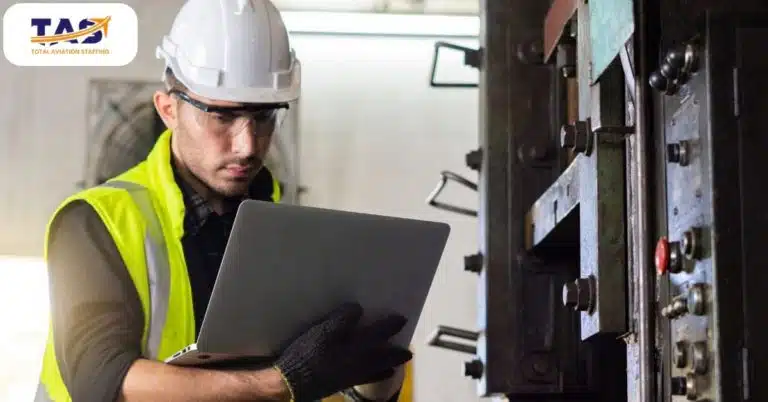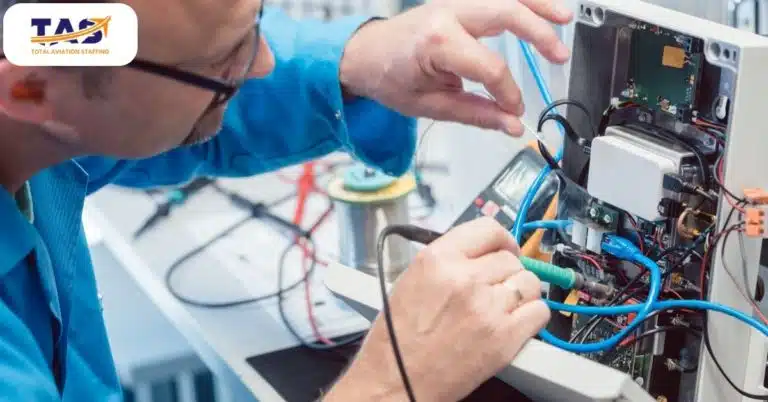10 Best Practices for Industrial Engineers in the Aviation Industry

Have you ever wondered what it takes to be an effective industrial engineer in the aviation industry? Industrial engineering is an important field that requires comprehensive knowledge of engineering principles, processes, and technologies. From optimizing airport operations to making sure aircrafts are safe and efficient, industrial engineers play a key role in helping to ensure smooth operations within the aviation industry.
1. Stay Up-To-Date With the Latest Aviation Industry News
Industrial engineers in the aviation industry need to stay abreast of the latest aviation industry news to remain competitive and knowledgeable. Having an awareness of innovative technology, advancements in aviation safety measures, emerging business models and industry trends can help industrial engineers leverage best practices for their clients and enhance their services.
Dedicating time to reading aviation-specific articles and staying informed with aviation industry magazines like Aviation Week is important for any industrial engineer looking to stay ahead of current developments.
Doing so will allow them to be proactive in providing quality service for their clients that moves with the standards of the aviation industry.

2. Plan and Design Efficient Manufacturing and Production Processes
As an industrial engineer in the aviation industry, it is essential to ensure efficient manufacturing and production processes are planned and designed correctly. This is achieved with a thorough understanding of aviation-related business practices along with robust analysis of potential designs and production solutions.
Leveraging data and analytics to continuously monitor performance cycles are also important best practices for optimizing the manufacturing process overall. Keeping up to date with aviation standards is another fundamental best practice for industrial engineers, as this helps guarantee safe operations by implementing proven manufacturing best practices as required.
Fostering such vital practices helps align aviation-specific initiatives with sound industrial engineering principles, resulting in greater success in the aviation industry.

3. Develop Safety Protocols for Industrial Facilities
Safety is paramount in the aviation industry, and industrial engineers are responsible for helping develop comprehensive safety protocols to ensure effective risk management. This includes providing extensive training for workers on safety measures, designing proper safety systems and equipment, implementing emergency plans and regularly performing inspections throughout the facility.
Ongoing maintenance of facilities with respect to safety standards along with ensuring compliance to all regulatory guidelines are vital best practices.
Additionally, the ability to identify potential hazards and proactively take steps to mitigate risks is another essential skill industrial engineers must possess in the aviation industry.

4. Optimize Material Flow Within Factories and Warehouses
Industrial engineers in the aviation industry are responsible for optimizing material flow within factories and warehouses. This includes developing efficient layouts, streamlining processes to reduce waste and improve productivity, increasing storage capacity by utilizing effective space management techniques, and implementing inventory control systems.
Having a comprehensive understanding of how materials move through facilities is essential in order to identify any potential bottlenecks or areas of inefficiency, and then devise ways to improve them.
Optimizing material flow not only helps reduce costs but also improves production and service quality while ensuring regulatory compliance is met.

5. Implement Lean Manufacturing Principles in Industrial Settings
For aviation industrial engineers, implementing lean manufacturing principles is an essential part of maximizing efficiency and cost savings for aviation-based business. Applying lean concepts to the aviation manufacturing process can help streamline production processes, identify stagnant operations and reduce waste products in aviation fabrication.
Industrial engineers need to be cognizant of what best practices they employ to ensure that aviation companies remain competitive in the ever-changing aviation industry. Adopting the lean methodology, which emphasizes value creation through the elimination of waste machinery, allows aviation businesses to increase production time while remain profitable.
Therefore, industrial engineers have a critical role in increasing productivity and reducing costs within aviation settings through the successful application of lean manufacturing principles.

6. Troubleshoot and Resolve Production Issues Quickly and Effectively
Industrial engineers in the aviation industry must possess the ability to quickly troubleshoot and resolve production issues. This includes analyzing existing systems, developing strategies to address problems, testing new and existing designs, and collaborating with other departments to ensure production runs smoothly.
Having a deep understanding of available resources is also essential to effectively diagnose any issues that may arise. Industrial engineers must be able to identify the root cause of problems and use their technical knowledge to implement effective solutions.
Finally, the ability to execute corrective actions in a timely manner is paramount. Industrial engineers should ensure that any changes made do not disrupt other processes or systems and that they are implemented with minimal disruption to production time.

7. Coordinate With Other Engineering Disciplines to Create Cohesive Systems Solutions
Industrial engineers in the aviation industry must also have the ability to coordinate with other engineering disciplines. This includes working closely with mechanical, electrical, and software engineers to create cohesive systems solutions that meet the needs of an organization.
Having a comprehensive understanding of how different components within a system interact is essential for industrial engineers as it allows them to identify areas of inefficiency and devise ways to improve them.
Industrial engineers also need to be able to evaluate existing systems and develop strategies for improving performance while considering the different engineering disciplines involved.
By collaborating with other engineering teams, industrial engineers can ensure that systems solutions are cohesive, cost-effective, and efficient.

8. Conduct Root Cause Analysis of Industrial Accidents and Incidents
Industrial engineers in the aviation industry must be able to conduct root cause analysis of industrial accidents and incidents. Root cause analysis is a process of determining the underlying factors that caused an incident or accident to occur.
Industrial engineers need to have a comprehensive understanding of safety regulations and practices as well as the ability to analyze data from various sources. This includes collecting data from witnesses, conducting interviews with personnel involved in the incident, and reviewing documents such as maintenance logs and technical reports.
Once all the information has been gathered, industrial engineers need to analyze it and identify any factors that led to the accident or incident. Finally, they must develop solutions to minimize the likelihood of similar incidents occurring in the future.

9 Control Quality of Products and Processes Throughout the Production Cycle
Industrial engineers in the aviation industry must also have the ability to control quality of products and processes throughout the production cycle. This includes identifying areas of improvement, implementing corrective actions, monitoring progress against set goals, and testing for compliance with safety standards.
Having a thorough understanding of lean manufacturing principles is essential for industrial engineers in order to effectively identify areas of inefficiency and develop solutions for increasing productivity.
Industrial engineers should also be able to troubleshoot any issues that arise during the production process and quickly respond to any changes in the manufacturing cycle. This includes developing plans for addressing potential problems and ensuring adherence to safety protocols.

10 Evaluate Ergonomic Risks in Industrial Environments and Design Solutions to Mitigate Them
Industrial engineers in the aviation industry must have the ability to evaluate ergonomic risks in industrial environments and design solutions for mitigating them. This includes assessing areas where people work or use tools and machines, evaluating potential hazards, and implementing measures to reduce the risk of injury.
Industrial engineers should be familiar with all relevant safety regulations as well as ergonomic principles. They should also be able to develop strategies for reducing risks in industrial environments while ensuring the safety of personnel and the quality of products.
By incorporating these skills and abilities, industrial engineers can ensure that their organization runs smoothly and efficiently while providing a safe and productive working environment for all employees.

In conclusion
The role of the industrial engineer in the aviation industry is essential for ensuring that systems are efficient and cost-effective, accidents and incidents are investigated and prevented, quality remains consistent throughout production cycles, and ergonomic risks are mitigated. Industrial engineers need to have a complete understanding of engineering principles as well as safety regulations and be able to quickly analyze data and develop solutions for any issues that arise. With the right skills, industrial engineers can definitely contribute to the success of their organization and the safety of its personnel.
By strategically executing their duties, industrial engineers in aviation industry can help ensure a safe working environment while ensuring that production processes remain efficient and cost-effective.
